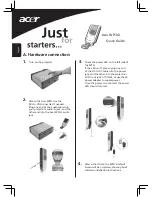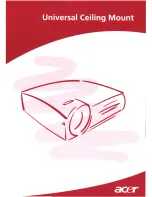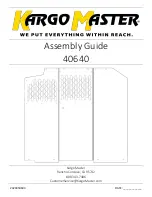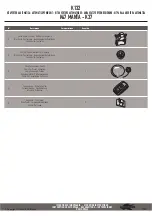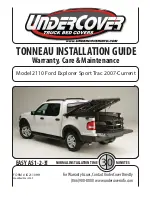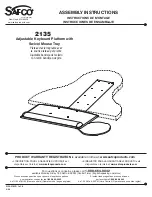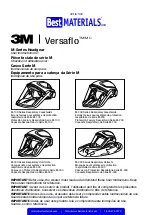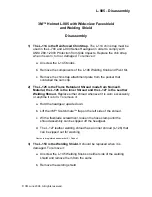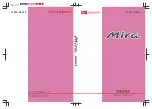
CHECKING FOR LEAKS
1. Inflate the air spring to 30 PSI.
2. Spray all connections and the inflation valves with a solution of 1/5 liquid dish soap
and 4/5 water. Spot leaks easily by looking for bubbles in the soapy water.
3. After the test, deflate the springs to the minimum pressure required to restore the
system to normal ride height. Do not deflate to lower than 5 PSI.
4. Check the air pressure again after 24 hours. A 2-4 PSI loss after initial installation is
normal. Retest for leaks if the loss is more than 5 PSI.
FIXING LEAKS
1. If there is a problem with the swivel fitting:
a. Check the air line connection by deflating the spring and removing the line by
pulling the collar against the fitting and pulling firmly on the air line. Trim 1” off
the end of the air line. Be sure the cut is clean and square (see Fig. 12). Reinsert
the air line into the push-to-connect fitting.
b. Check the threaded connection by tightening the swivel fitting another half turn.
If it still leaks, deflate the air spring, remove the fitting, and re-coat the threads
with thread sealant. Reinstall by hand tightening as much as possible and then
use a wrench for an additional two turns.
2. If there is a problem with the inflation valve:
a. Check the valve core by tightening it with a valve core tool.
b. Check the air line by removing the air line from the barbed type fitting. Cut the
air line off a few inches in front of the fitting and use a pair of pliers or vice grips
to pull/twist the air line off of the fitting.
DO NOT CUT OFF THE AIR LINE COMPLETELY AS THIS WILL USUALLY NICK THE
BARB AND RENDER THE FITTING USELESS.
3. If the preceding steps have not resolved the problem, call Air Lift customer service at
(800) 248-0892.
Before Operating
LoadLifter 5000 Series
MN-1047
12
CAUTION





















